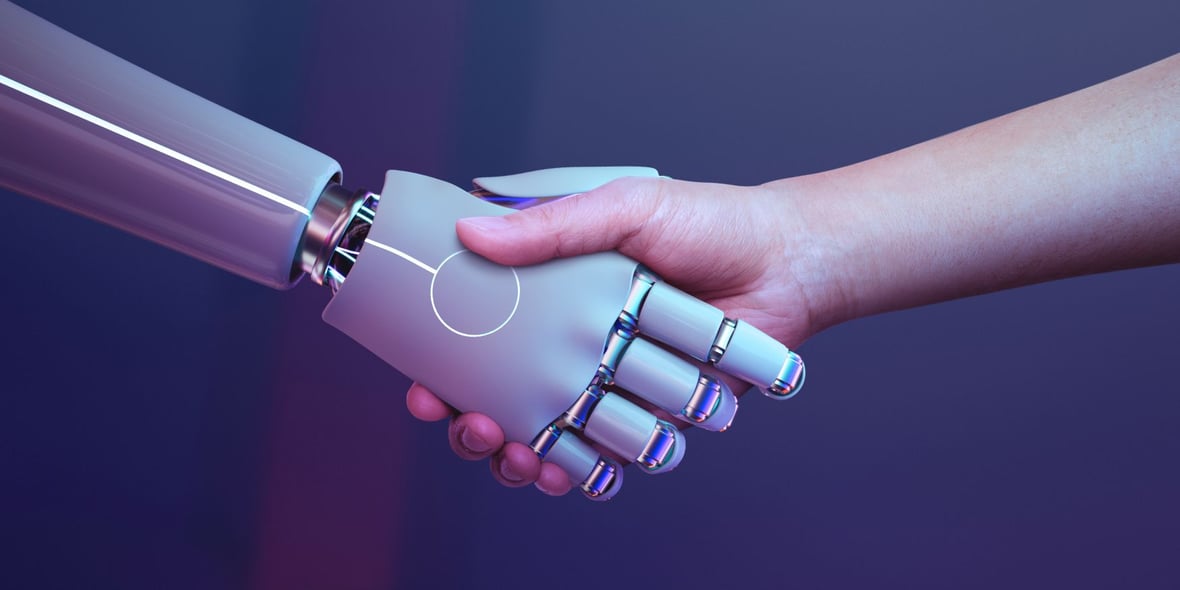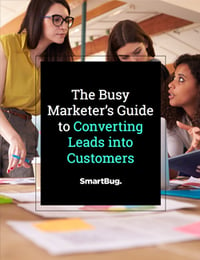
Unleashing the Potential of ChatGPT and AI in Your Marketing Strategy
May 10, 2023
By Ale Melara
Artificial Intelligence (AI) has become increasingly important in marketing strategy, as it has the potential to enhance customer experience, streamline processes, and improve overall marketing performance. By leveraging AI technologies such as ChatGPT, businesses can remain cost-effective, scaling up marketing campaigns and increasing their return on investment (ROI).
AI allows businesses to gain insights into what drives customer satisfaction and optimize the overall customer experience. With ChatGPT, businesses can deliver tailored recommendations for products and services, providing targeted promotions that resonate with their customers. ChatGPT can also analyze customer interactions on social media or message platforms to determine how customers perceive the brand, ultimately helping to improve marketing strategies.
Use Cases of ChatGPT and AI in Marketing
Here are some of the most popular use cases for ChatGPT and AI in marketing:
Immediate Assistance and Customer Support
ChatGPT can be used to provide 24/7 support to customers, answering questions and providing solutions to product or service issues. ChatGPT can also be used to automate customer support, allowing businesses to resolve customer queries efficiently and cost-effectively.
Personalized Engagement and Content Recommendations
ChatGPT's natural, conversational-like interaction lends itself well to offering personalized engagement and content recommendations. ChatGPT can analyze customer preferences, behaviors, and interactions to recommend content that may be of interest to them.
Surveys, Data Collection, and Feedback
ChatGPT can be used to conduct surveys and collect feedback to better understand customer preferences and needs. By analyzing dialogue and conversation patterns, ChatGPT can identify what the customers like or dislike and offer suggestions to improve the customer experience. These insights can help businesses improve their products, services, and marketing campaigns—thereby increasing customer satisfaction and engagement.
Automation of Sales Process
ChatGPT can qualify leads, assist with scheduling appointments, and answer product or pricing queries. This automation of tasks such as pre-sales inquiry allows sales representatives to focus on mission-critical tasks and optimize sales efficiency.
Improving Conversion Rates
ChatGPT can help boost conversion rates by offering personalized support and recommendations. This increases customer engagement and loyalty, which in turn leads to more sales.
Benefits of Using ChatGPT and AI for Marketing
Here are some of the benefits of using ChatGPT and AI for marketing:
Time-Saving
One of the primary benefits of ChatGPT is that it can lighten the workload of marketing teams by providing efficient support. ChatGPT can provide immediate assistance and solve customer queries at a much faster rate than traditional customer service methods, freeing up more time for marketers to focus on high-value tasks.
Cost-Efficiency
ChatGPT can be a cost-effective solution for businesses that require 24/7 support. With ChatGPT, businesses don't need to hire additional staff for customer service to provide around-the-clock support, reducing workforce and salary costs.
Increased Conversion Rate
ChatGPT's personalized engagement can help improve conversion rates. By offering personalized support, ChatGPT can provide tailored product recommendations, discounts, and promotions to customers that can motivate them to make a purchase.
Better Customer Experience and Engagement
ChatGPT can provide a personalized experience, adding value to the customer's experience by interacting with them in a natural, conversational manner. ChatGPT can handle large volumes of customer queries and resolve them instantaneously, making the process efficient and seamless.
Data Collection and Insights
ChatGPT can analyze customer preferences, behaviors, and interactions, providing valuable insights into customer needs and priorities. This information can help businesses improve their products or services and refine their marketing campaigns to reach more customers.
Scalability and Around-The-Clock Availability
ChatGPT can be easily scaled to handle high volumes of customer queries. It is also available 24/7, allowing it to offer continuous support to customers.
ChatGPT and AI in Marketing Best Practices
While incorporating ChatGPT and AI into a marketing strategy can lead to improved customer engagement, increased conversion rates, and streamlined processes, it's essential to use these tools in the right way to achieve the most significant impact. Here are some best practices to follow when integrating ChatGPT and AI in marketing:
Identifying the Use Case
Before implementing ChatGPT and AI, it's essential to identify what the tool aims to accomplish. That could be promoting specific content, answering customer queries, or collecting feedback. Identifying the use case helps you know what to expect from the AI chatbot and the best way to integrate it into an existing marketing strategy.
Choosing the Right AI Technology
Not all AI technology is equal, and not every chatbot is suitable for every use case. It's essential to pick the right AI technology that will give the best possible result for the identified use case. ChatGPT is an excellent choice for conversational applications such as answering customer queries or guiding customers through purchasing.
Understanding Your Target Audience
Provide the chatbot with relevant conversational data by knowing and understanding the customer's needs and preferences. Knowing their preferred communication styles and favorite products can influence how the AI chatbot interacts with the customer.
Seamless Integration with Existing Marketing Strategy
AI chatbots should fit seamlessly into your existing marketing strategy. It is crucial to understand the customer journey and to know when to use ChatGPT at each stage of the journey. Rather than act independently, the chatbot should complement other marketing channels that are used to enhance the customer journey's overall experience.
Incorporating ChatGPT and AI into a marketing strategy can deliver optimal results if done correctly. By following best practices such as choosing the right AI technology, understanding the target audience, and combining the AI chatbot with existing marketing strategy, businesses can leverage the AI chatbot's full potential to build a competitive advantage and deliver maximum value to their customers.
Current Trends and the Future of ChatGPT and AI in Marketing
The popularity of ChatGPT and AI in marketing is on the rise and continued growth is expected in the coming years. Here are the current trends and future predictions of ChatGPT and AI in marketing:
Industry-Specific Use Cases
AI-powered marketing showcases industry-specific use cases such as conversation optimization, data analysis, customer segmentation and targeting, and voice search analysis. The potential use cases can vary based on the product or service, the channel, and the delivery, so organizations have to identify the precise touchpoint where AI could enhance.
Technological Advancements
Advancements in natural language processing (NLP), machine learning, chatbot functionality, and voice recognition technologies are driving the adoption of ChatGPT and AI in marketing. AI algorithms are becoming more sophisticated, allowing more complex interactions and personalized experiences for customers. New forms of communication—such as voice or video chatbots—may emerge with the potential for even greater personalization and engagement.
Chatbot Monetization
Another emerging trend is chatbot monetization, where brands seek ways to generate revenue from chatbot interactions. Instead of chatbots solely focusing on providing customer service, the next big things in chatbot innovation might be offering monetization for referrals or providing product recommendations that result in conversions.
Omnichannel Integration
Integration of ChatGPT and AI into omnichannel marketing approaches can result in a more comprehensive and cohesive customer experience. An AI-powered chatbot can be integrated with various channels—such as a website, social media, mobile applications, and messaging apps—simultaneously to provide more consistent support along with tailored interactions.
Enhanced Personalization and Customer Experience
As AI-powered chatbots become more advanced, customer experiences will become increasingly personalized. They will be able to offer highly targeted products, services, and content to individual consumers to meet their unique needs. Customized chatbots are likely to become more responsive and learn more about their customers, ultimately leading to improved customer engagement and loyalty.
Conclusion
By using ChatGPT for immediate assistance and tailored engagement, businesses can offer a better customer experience and improve conversion rates. Implementing AI technology requires identifying the right use case for it, understanding the targeted audience, and seamless integration with existing marketing campaigns. By incorporating these technologies into their marketing strategies today, businesses can gain a distinct competitive advantage and enhance their growth prospects in the future.

About the author
Ale Melara is a Sr. Content Marketing Manager based out of El Salvador, Central America. Ale is our very first LATAM employee. She's worked remotely for the past 5 years and she's had different roles in sales and marketing. In her free time, she works on creating educational videos around digital marketing for her "Inbound Nomad" social accounts where she promotes traveling the world while being a full-time marketer. Read more articles by Ale Melara.








